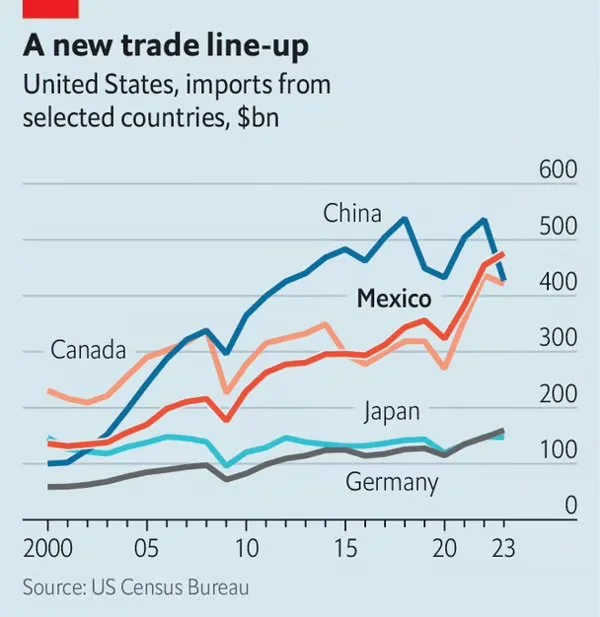Expert Take | What Trump 2.0 Means for Latin America
January 30, 2025
The world is closely watching President Trump as he embarks on his second term, following a whirlwind of campaign pledges. For this series, we turned to Basilinna’s network of over 50 experts to share their insights on what this next chapter could mean for their sectors and regions.
Expert Take from Basilinna Executive Director, Carolina Barco
What does the second Trump administration mean for Latin America?
Latin America is closely monitoring President Trump’s second term, marked by priorities that directly impact the region, including immigration, drug cartels, and the influence of China. These issues resonate due to record-high migration at the U.S.-Mexico border, increasing fentanyl-related deaths (over 70,000 last year), cartel-driven violence, and China’s growing role as a trade partner and investor.
President Trump has pledged to implement strict measures to address these challenges. His administration aims to curb illegal immigration by militarizing the southern border, resuming deportation programs, ending birthright citizenship, and enforcing policies such as “Remain in Mexico.”
In combating drug cartels, Trump has declared these groups as terrorist organizations.
On China, his administration plans to impose tariffs on goods with high Chinese content, impacting countries like Mexico. Trump has also threatened to “retake” the Panama Canal, accusing China of unfairly managing it.
Donald Trump attends a multilateral meeting on Venezuela in New York, Sept. 25, 2019. Saul Loeb/AFP/Getty Images
While these measures could curb security threats and boost regional trade opportunities through nearshoring, they may also create economic disruptions and strain diplomatic relations if not collaboratively managed. We saw this strain and disruption over the weekend when President Petro refused to let military planes with Colombian deportees arrive in Colombia after he had given initial permission and had accepted many flights previously. President Trump threatened tariffs if Colombia continued to reject such flights. The tactic worked potentially setting the playbook for any other such challenges.
This period presents both challenges and opportunities for Latin America under the guidance of Secretary of State Marco Rubio, the first Latino to hold the position. Rubio, a former Senator and expert on the region, has championed legislation like the U.S.-Ecuador Partnership Act of 2022 and the Western Hemisphere Security Strategy of 2022.
His deep knowledge and connections in Latin America could help foster constructive relationships, yet the time he has to dedicate to the region will be constrained by pressing geopolitical priorities in Ukraine, the Middle East and China.
Latin American countries’ domestic politics will also shape their engagement with the Trump administration. For example, Trump has taken a hardline stance on Cuba, imposing measures such as suspending remittances, restricting flights to Havana, and limiting travel for exiled Cubans. Similarly, visa restrictions have targeted Venezuelan officials, reflecting his administration’s tough approach to leftist regimes.
The region remains politically divided, with key elections in 2025 set to influence its landscape.
In Mexico, Claudia Sheinbaum of Morena will continue the populist policies of her predecessor, Andrés Manuel López Obrador. Venezuela’s Nicolás Maduro declared himself president for another five years amid contested elections. Ecuador faces a February runoff between conservative incumbent Daniel Noboa and left-wing candidate Luisa González. In Bolivia, August elections will pit leftist candidates Luis Arce and Evo Morales against conservative Jorge “Tuto” Quiroga. Chile and Honduras will hold elections in November, while Argentina will see midterms that act as a referendum on Javier Milei’s administration.
As these political shifts unfold, the response of Latin American leaders to Trump’s “America First” policies will shape U.S.-Latin America relations. The region has a chance to leverage Rubio’s expertise and negotiate mutually beneficial solutions, but it will require diplomacy and collaboration to navigate the challenges ahead.
What trump 2.0 means for the world
Read more from our experts on what Trump 2.0 could mean for their sectors and regions.
Published by Basilinna Institute. All Rights Reserved.









